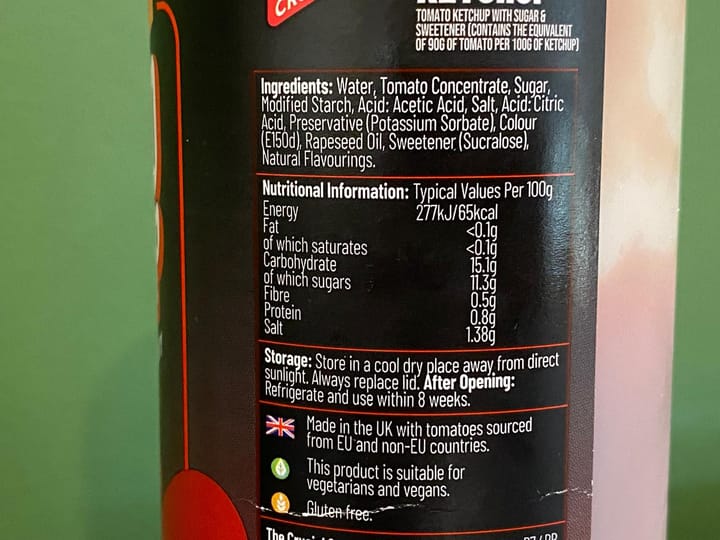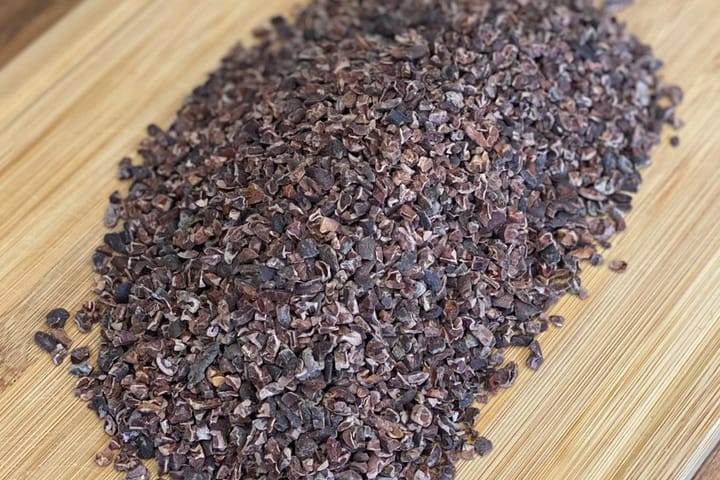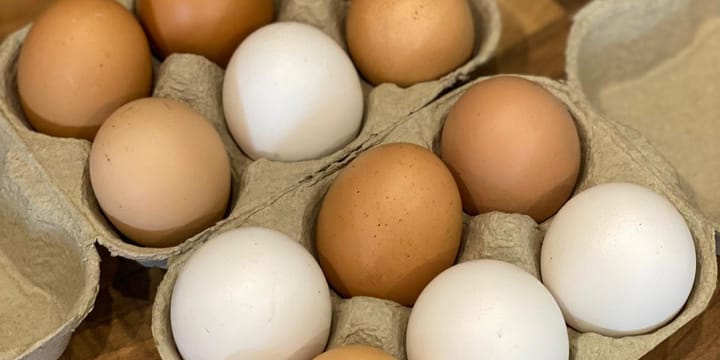Nitrates, nitrites and nitrosamines
What I learned this week #6 puts bacon and green veg on trial.

You don't have to go too far down the social media metabolism rabbit hole to find a plethora of content raging one way or another over nitrates and nitrites so I wanted to find out what role nitrogen has to play in metabolism. Will bacon be making my banned-food list?
Get the weekly War on Diabetes newsletter for updates and tips on reversing type 2 diabetes.
Nitrates
Let's start at the beginning... Nitrates are found in plentiful supply in green leafy vegetables. They hoover them up from the soil and store it in their leaves. When you eat your greens, the nitrates are absorbed via the small intestine into your bloodstream.
Nitrites
Around 25% of circulating nitrate is secreted into saliva by the salivary glands. Bacteria on your tongue uses an enzyme called nitrate reductase to knock off one of nitrate's 3 oxygen atoms to create nitrite which is nitrogen combined with 2 oxygen atoms. So… processed meats, such as bacon aren't the only source of dietary nitrites.
After 30 minutes to an hour after eating your greens, nitrites find their way back to your stomach where they then follow one of two pathways:
- Stomach acid knocks out another oxygen atom to form nitric oxide, a gas that provides a long list of important metabolic benefits.
- In the presence of animal protein (amines) and high acidity or temperature, nitrites can be converted to nitrosamines. These are suspected to be hazardous to health.
Nitric Oxide
This is a super-star chemical that is important in a range of metabolic processes:
- Relaxes blood vessel walls and increases vascular dilation reducing your risk of cardiovascular disease and also helps to reduce high blood pressure
- Improves mitochondrial function (your energy producing and metabolic regulation cells)
- Increases blood flow to the pancreas which boosts insulin production
- Improves glucose tolerance and insulin sensitivity
- Boosts anti-inflammatory signalling
Nitrosamines
The reason, nitrites are considered unhealthy is mainly due to animal studies on the effects of nitrosamines which show them to be carcinogenic and theoretically could cause DNA damage. Observational human studies show a correlation with these findings. However, there isn’t a lot of definitive evidence and healthy user bias is often stated as one of the main reasons to mistrust observational studies on human diets. i.e. most people eating bacon are probably also having it with ketchup and white bread (I know I used to) so it might not be the bacon doing the damage.
Dietary sources of nitrates
Rocket, spinach and romaine lettuce are the top sources of nitrates.
Celery and beetroot are also good sources, however beetroot is a no-go for anyone with blood glucose control issues. If you're doing a bolognaise (or any kind of Italian tomato sauce) then include celery to your sofrito. If you’re having salads, opt for romaine (or darker green) lettuce and add some celery sticks.
Dietary sources of nitrites
Common sources of nitrites are mainly processed meats such as bacon, ham, salami and corned beef. There's about half as much nitrite content in sausages.
What to do about it
I wouldn't be overly worried about nitrites, but it might be worth just being mindful of maybe not eating processed meats on a daily basis. The general advice about avoiding processed meats is usually more concerned with saturated fat which has largely been debunked now so this saturated-fat-o-phobia is just an outdated dogma that's taking time to shift because so much industry-backed propaganda has prevaled over the last 50 years or so. I'm always frustrated when i see the term 'healthy fats' or 'lean cuts of meat' being recommended as that tends to imply avoiding fatty cuts of meat which contain important fatty acids such as C-15 and lots of other micronutrients. Industrially processed seed oils are unhealthy fats but avoiding saturated fat is not a healthy approach.
Personally, I still enjoy ham or bacon once every couple of weeks and I regularly have sausages and eggs for breakfast. I try to find high pork content sausages with as little sugar included as possible. A new thing I am going to try, is adding roast red pepper instead of/as well as my usual couple of cherry tomatoes as a ketchup substitue because red pepper is much higher in vitamin C. I'm also going to keep a look out for nitrite-free bacon - it's gaining popularity in other European countries and I haven't seen it here yet but will be trying it as soon as I find any. It won't have the same dark prink/red colour so don't be put off by that if you want to try it.
I'm going to keep having salads for lunch and maybe have them more regularly, making sure to include spinach and celery. I'm not a huge fan of raw celery so I might try pickling it to see if it makes it a bit more interesting (it does wonders for pre-boiled eggs).
Find out more about the technical details of nitrates, nitrites and nitrosamines from Dr. Ben Bikman

Sponsored
I struggled to find where to buy non-homogenised milk locally and eventually found The Modern Milkman. Their organic whole milk in my area is non-homogenised so I've been getting milk and eggs from them for two yeas now. Use this link to get 50% off your first two weeks and they'll give me 50% off my next delivery as well. Cheers!


